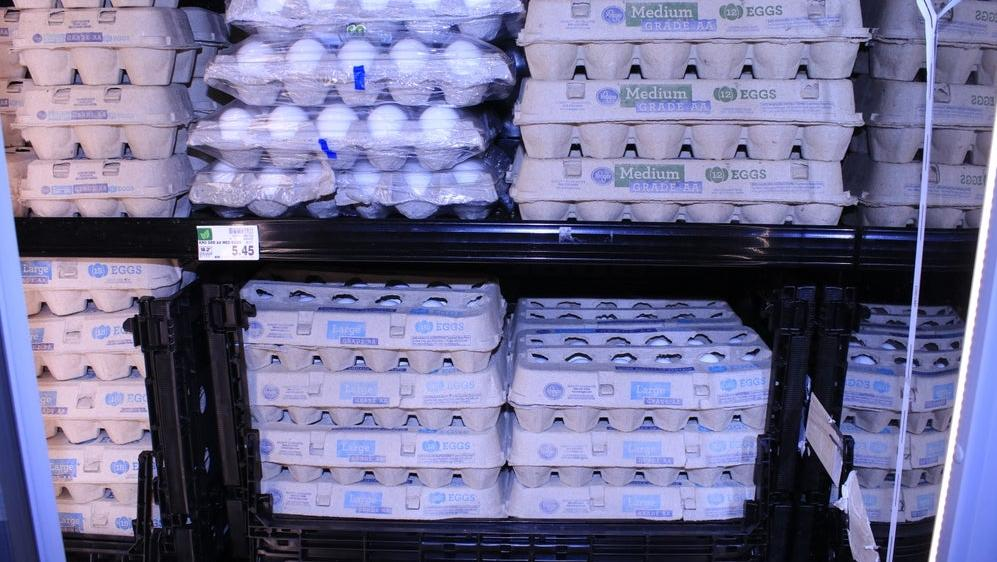Kroger Is Being Sued Over 'Farm Fresh' Eggs
The grocery chain’s Roundy’s brand is selling eggs that allegedly aren’t what they seem.
Most headlines with the Kroger Company's name in it have recently been all about its struggle to merge with fellow massive grocery chain Albertsons. But it appears Kroger might have another legal hurdle to take on that has nothing to do with the merger, per a recent case filing.
A class action lawsuit filed in the U.S. District Court for the Northern District of Illinois alleges that Roundy's, a subsidiary of Kroger, has been misleading consumers by labeling its eggs as "farm fresh." The plaintiffs in the filing argue that the use of this phrase indicates to consumers that the hens producing the eggs are "living a natural life on a farm." However, Kroger's hens are kept in a battery cage system in which they allegedly receive minimal access to the outdoors.
"'Farm Fresh' evokes favorable impressions in consumers, such as an image of a farmer getting up with roosters to gather warm eggs from straw nests and rush them to the local general store," reads a portion of the lawsuit.
The lawsuit notes that battery cage systems such as those used by Roundy's suppliers confine hens to an area of about 18 by 20 inches, with up to 11 birds per cage, making it so that they cannot spread their wings; the hens often lead very short lives. The filing also cites information from food safety, consumer protection, and public health organizations which oppose the caging of egg-laying chickens, due to concerns that this method creates an increased risk of salmonella and other diseases.
However, the complaint argues that the average consumer likely wouldn't be able to tell what kind of environment or production methods were used to produce the eggs simply based on their appearance or taste. For this reason, the lawsuit alleges Kroger is guilty of fraud, unjust enrichment, and violation of the Illinois Consumer Fraud and Deceptive Business Practices Act.
Although this lawsuit is in its early stages, the plaintiffs' concerns highlight the fact that egg labeling is largely unregulated, and any potential cruelty suffered by animals on factory farms is obscured from the public eye. Choosing the least evil eggs at the grocery store can be hard.
For consumers seeking more transparency, there are tools like The Cornucopia Institute's Organic Egg Scorecard, which ranks 150 brands on the ethics and of their farming practices. Similar scorecards for organic dairy, beef, poultry, and even things like snack bars and yogurt can also help guide one's shopping choices.
